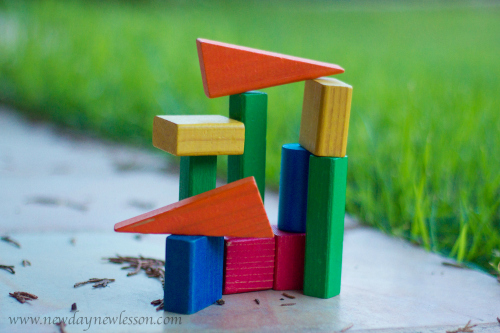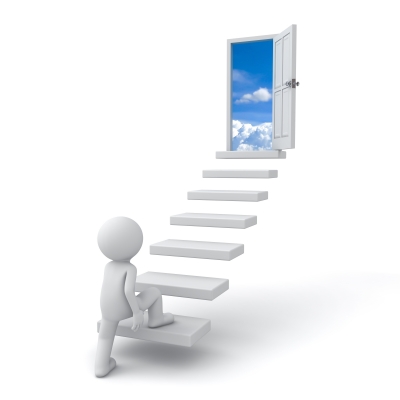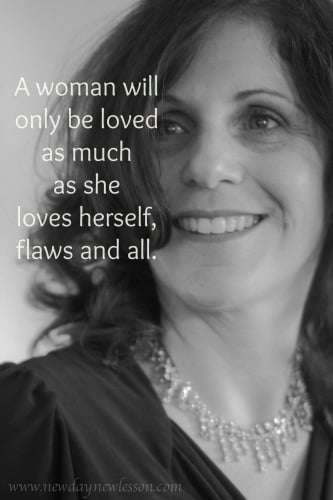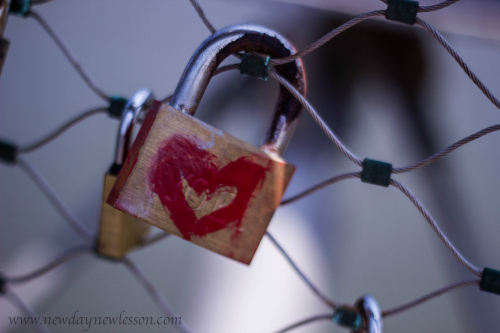by Mama B (Saudi Arabia) | Nov 26, 2014 | Adolescence, Awareness, Boys, Brothers, Culture, Education, Eye on Culture, Family, Gender, Girls, Husband, International, Life Lesson, Motherhood, Older Children, Parenting, Puberty, Relationships, Saudi Arabia, School, Teenagers, Womanhood, World Motherhood
I grew up in a house full of girls with one baby brother, who was so much younger than me that our friends and social lives didn’t overlap.
Now that I am the mother of three boys and one girl, I am learning many things I never knew about boys: they are more straightforward, easier to read, and, honestly, easier to persuade than girls. Boys wrestle–a lot. Even when they haven’t got the hang of walking yet, they wrestle. (I still don’t know why.) Boys are more emotional than I expected, and more sensitive.
I know there’s a lot more to learn about raising boys, and I’m excited to do it–especially because I can call in their father whenever something freaks me out.
Despite my growing expertise in raising boys, something recently caught me off guard. Something obvious in our society, but not so prevalent in my ‘tribe’ (which is what I call my close family–mother, father, aunts, uncles, cousins, etc.).
My eldest turned 11 this year, and is in the phase between boy and teenager. And I find myself surprised to discover that our society’s segregation of men and women is changing my relationship with my own son.
I was totally unprepared for the separation that occurred when he moved from the little school to the big school. I went from being able to walk into his class, to speak to his teacher, and to meet his friends and their moms, to having to drop him off and pick him up outside the school gate (but not right in front of it, where the other boys could see us).
No more going into the school, unless I make an appointment with the headmaster and go to his office to speak with the teachers. (And even that is not permissible in most boys’ schools, the majority of which would not even allow a woman on the premises. The same is true for girls’ schools, which don’t permit men on the premises.)
My son can no longer go into the all-women area of the malls. In a few years, he won’t be allowed in any area of the mall without a ‘family’ for fear he will terrorize the girls. (Ironically, some young teenagers wait outside the malls and approach older women, or women with children, and ask them to pretend they are one family to gain entrance into the mall.)
Soon, my son won’t invite his friends over when his sister is home, although he could still invite cousins and close family friends.
There are so many unwritten rules concerning the separation of girls and boys, and a million variations. For some families, it’s pretty black and white: unless he is your brother or father, or unless she is your sister or mother, you don’t spend time with them. It also depends upon the region. In the eastern or western provinces, strict segregation is not as prevalent as it is here in the central region. In seacoast areas, people have the benefit of interacting with many cultures, and are therefore more forgiving.
I am baffled by how our society has become so segregated. Throughout the early history of Islam, segregation wasn’t practiced. Modesty and chastity, yes. Total segregation, no. I do not even think it was part of our culture as Saudis. At least, not to the extent it is today.
Until recently, Bedouin women were expected to welcome travelers into their tents, and to make them coffee, and even dinner, regardless of whether her husband was there. Yes, most would have had their faces covered (again, a cultural custom, not religious one), but they interacted with men all the time. It’s only in recent years that things have changed. Some put it down to the influences that came into Saudi when it was united. Others say it is a reaction to how fast we were exposed to the outside world, and how quickly we went from tribal life to modern-day life.
Theories aside, I’m facing the reality of being shut out of a part of my son’s life and of him being shut out of mine.
When I explained my concern to one of his teachers (over the phone) he said, “You can’t follow him around all of his life!” As if I were a stalker! Am I being a stalker? Hmmm, I wonder how involved I would be in his day-to-day school life if I were?
My biggest fear is that if he gets caught up in the wrong crowd, segregation makes it easier in certain houses with absent fathers to make mistakes and do stupid stuff. I thank God his father keeps an eye on him, and that he still fills me in about his day and talks to me when he is upset. If we can continue to talk, I think I may be okay.
Perhaps I just don’t like not being in control of the situation, or perhaps it’s that I don’t have the choice.
Would you naturally step back from your son’s day-to-day life when he turns 11 or 12? Would you withdraw from knowing his friends and supervising his outings?
It’s all foreign territory for me now, and I am learning to deal with it as best I can.
This is an original post to World Moms Blog from our contributor in the Kingdom of Saudi Arabia and mother of four, Mama B.
Photo credit: Dr. Coop under Flickr Creative Commons License

Mama B’s a young mother of four beautiful children who leave her speechless in both, good ways and bad. She has been married for 9 years and has lived in London twice in her life. The first time was before marriage (for 4 years) and then again after marriage and kid number 2 (for almost 2 years). She is settled now in Riyadh, Saudi Arabia (or as settled as one can be while renovating a house).
Mama B loves writing and has been doing it since she could pick up a crayon. Then, for reasons beyond her comprehension, she did not study to become a writer, but instead took graphic design courses. Mama B writes about the challenges of raising children in this world, as it is, who are happy, confident, self reliant and productive without driving them (or herself) insane in the process.
Mama B also sheds some light on the life of Saudi, Muslim children but does not claim to be the voice of all mothers or children in Saudi. Just her little "tribe." She has a huge, beautiful, loving family of brothers and sisters that make her feel like she wants to give her kids a huge, loving family of brothers and sisters, but then is snapped out of it by one of her three monkeys screaming “Ya Maamaa” (Ya being the arabic word for ‘hey’). You can find Mama B writing at her blog, Ya Maamaa . She's also on Twitter @YaMaamaa.
More Posts

by Susie Newday (Israel) | Oct 1, 2014 | 2014, Awareness, Israel, Life, Parenting, Relationships, Susie Newday, World Motherhood

I love watching little kids discover the excitement of building blocks. Their pudgy little fingers slowly stack one brick on top of another squealing with amazement when the lopsided house they built comes tumbling down.
Kids might not realize it, but we all know that a house build on a shaky, soft or unsteady foundation will never weather the elements or the test of time. Our lives are the metaphorical houses built out of the relationships woven into them.
From our first day on this planet, are lives are all about relationships. No matter which way we turn we can’t escape them. Even when we force ourselves into seclusion we can’t escape the relationship we have with ourselves. From the moment we are born, until the day we die, we build our lives one relationship at a time. Some are loving and successful relationships, while others are draining and weaken the fabric of our self esteem and lives.
So what makes some relationships better than others? What is the one key element that is found in every single successful relationship? What is the foundation of every strong union between two people? What is the most important building block that lends strength to our very essence?
Respect. Not one sided respect. Mutual respect.
It’s a simple word that rolls easily off our tongues, sometimes even said with casual irreverence. The question is how well, if at all, do we put it into action in our day to day lives?
Think about every heated argument you’ve ever had with anyone and I can promise you that if you break it down to the basics, there was no mutual respect between the parties. Each side wanted something badly enough to not treat the other side with respect.
Treating someone with respect does not mean agreeing with them. Treating them with respect means that you can hear their point of you, you can disagree with them and still love them for the amazing person they are.
When there is respect, compromise is easy because it is coming from a place of love and appreciation, and it’s not a feeling of having given in. It’s a feeling of give and take.
So how do you put mutual respect into action. Simply put, you need to work hard at treating other people the way you want to be treated. When you treat with respect, you will be treated with respect.
What do you think is the most important building block for relationships?
This is an original post to World Moms Blog by our contributor, Susie Newday in Israel. You can find her on her blog New Day New Lesson.
Photo credit to the author.
Susie Newday is a happily-married American-born Israeli mother of five. She is an oncology nurse, blogger and avid amateur photographer.
Most importantly, Susie is a happily married mother of five amazing kids from age 8-24 and soon to be a mother in law. (Which also makes her a chef, maid, tutor, chauffeur, launderer...) Susie's blog, New Day, New Lesson, is her attempt to help others and herself view the lessons life hands all of us in a positive light. She will also be the first to admit that blogging is great free therapy as well. Susie's hope for the world? Increasing kindness, tolerance and love.
You can also follow her Facebook page New Day, New Lesson where she posts her unique photos with quotes as well as gift ideas.
More Posts - Website
Follow Me:






by Nihad | Sep 10, 2014 | 2014, Education, Egypt, Family, Motherhood, Parenting, World Moms Blog, World Motherhood
 Schooling years are a big challenge for parents. Often, we even regard those years as a period of crisis. For Egyptian mothers the most challenging schooling years that we experience are the final two years of high school. Those two years are called “Thanaweya Ama”.
Schooling years are a big challenge for parents. Often, we even regard those years as a period of crisis. For Egyptian mothers the most challenging schooling years that we experience are the final two years of high school. Those two years are called “Thanaweya Ama”.
The scores of the last year of high school determines the future of our children. Students are admitted to specific faculties in college in accordance to their scores during the last year of school. To be able to join the college they want, students need to satisfy the minimum the college has indicated for applying. Only students with very high scores can choose the path they truly desire. The rest must follow the path their scores allow. In our community the top three sought after colleges are Medicine, Engineering and Pharmacy. Most of us believe that the students who join these colleges are the smartest ones. It’s frustrating for parents when because of their scores, their child cannot realize their dream of joining one of these colleges. Actually, it’s usually the parent’s dream.
I remember what a tough year that year was for me as a student. I challenged myself to get more than 90% although the faculty of Engineering, which I wanted to join, accepted students with only an 80% score. I remember how I had to study for long long hours and the thousands of math problems I had to solve. I became addicted to it. At that time, solving math problems in different branches of mathematics became my only pleasure. I was really nervous and upset.
Sadly, the beliefs the students and the parents held, made that period of time a nightmare. It became common during the final exams to see photos of crying and screaming students in the newspapers. A household with a student in Thanaweya Ama is living an emergency crisis year.
I will live through this experience with my eldest son next year. He is in his pre-final year or let’s just call it eleventh grade. For the most part, over the years, he hasn’t been willing to work hard although sometimes he did focus on the subjects he was interested in. Usually he received good scores in the subjects that interested him but average scores in the rest of the subjects. His resulting overall score was average.
Last year, he started becoming more aware that he needs to work harder, He has begun to realize that his future will be determined by the coming years. That was really surprising and pleasing for me. He has finally begun spending longer hours working on his homework and studying, although still working on the subjects he likes. His scores at the end of last year were still average.
From my point of view, my main objective is not to ensure he gets the highest scores but that he discover his capabilities and find out how smart he is. I believe in him and in his strengths but I find that he isn’t willing to challenge himself enough.
Many mothers with children in final year recently advised me not to press him too much this year as the next year will be so long. It lasts almost 11 months as it starts in July and ends the following June. They believe that he will be under great pressure next year. I believe that he needs “to build his muscles” this years. I believe he needs to get used to exerting more effort in order to be prepared enough for the real competition.
Since the fourth grade I have let him manage on his own. I didn’t care a lot about pressuring him to get the highest scores, all I wanted is for him to learn to manage on his own. I wanted him to realize that he’s responsible and he can study on his own. The question now is what is my role in helping him find out his real potential during this period of his life? How can I motivate him without stressing him out? I’m sure that excessive stress is the biggest enemy during this year. I’ve always told him “Don’t worry about the scores. All I want you to do is to relax, believe in yourself and do your best.”.
When I think about the challenge I’m facing with him during these two years of Thanaweya Ama, I try to get a clear image of what is my main role. It’s not as easy as following up with him to see if he has finished his homework or not. Eventually I came up with the idea that helping him manage his time, taking care of his nutrition and his sleep, supporting him emotionally and motivating him are what he needs more and it’s the best I can offer him during this vital period of his life.
As a mother, do you think that’s enough? What challenges do you face with your children’s education in your country? How do you support them? How can you help other mothers overcome similar challenges?
This is an original post for World Moms Blog by Nihad from Alexandria, Egypt. Nihad blogs at Aurora Beams Life Coaching.
Image courtesy of “Figure Stepping Up To His Goal” by Master isolated images, FreeDigitalPhotos.net

Nihad is an Egyptian woman, who was born and has lived her whole life in Alexandria, Egypt. She says, “People who visited this city know how charming and beautiful this city is. Although I love every city in Egypt, Alexandria is the one I love the most.”
She is a software engineer and has worked in the field for more than twenty years. But recently she quit her job, got a coaching certificate and she is now a self employed life and career coach. She says, “I believe that women in this era face big challenges and they are taking huge responsibilities. That's why I have chosen my niche -- women looking for happiness and satisfaction. I help and support them in making whatever change (career change, life change, behavior change, belief change…) they want to bring more satisfaction and happiness in their lives.”
Nihad is a mother of two lovely boys, 15 and 9 years old. She states, “They are the most precious gifts I have ever had. I madly love them, and I consider them the main source of happiness in my life.”
Our inspiring mother in Egypt can also be found at Aurora Beams Life Coaching.
More Posts

by Susie Newday (Israel) | Sep 3, 2014 | 2014, Being Thankful, Inspirational, Israel, Life Lesson, Motherhood, Susie Newday

Sometimes I laugh at myself. Sometimes I scold myself. On occasion, I love myself. Mostly, I just don’t understand myself.
I have a good life. I’m healthy, I have a great husband, 5 amazing kids, a job helping people (which I do wish paid more money, but oh well), a house, a car, hobbies and so much more.
I also see first hand, especially at work, the suffering and the heartache people go through and the resilience and determination they show. Yet for some reason I can’t seem to find the right way to live a consistently grateful life, in my daily actions not just in my head.
I am grateful for my life. Logically, I know that and I really believe that. Yet I can’t seem to translate that into a life of consistent happiness and acceptance of what is.
There are some people who live a life of gratefulness, through good times and bad times. They are people whom I envy because they’re grounded, they have direction and their entire being, not just their logical head, feels their daily consistent gratefulness. I have spent hours and days trying to figure out how to become one of those people. Just when it seems like I might be moving in the right direction, life throws a curveball and hits me in the head.
Yet even then, every so often, that curveball shows me a glimpse of an answer. Like when I wonder if maybe love is the answer. Maybe the key to gratefulness is learning to love yourself, with all your flaws, real and imagined. Because how can you be grateful for anything else if you are not grateful for the wonder that is you, with all its imperfections.
I ponder and think about it, but I’m not sure and for me, loving myself is such a hard task. Because I’m critical and at first glance all that I see is what needs to change. All that is wonderful and good takes second place.
But maybe, just maybe, “gratefulness=love of self” is the equation for a happy fulfilling life.
What do you think? How do you learn to live gratefulness, in your heart and in your being, not just in your head? How do you learn to love yourself?
This is a poem I had written a while back that I happened across and made me think about this whole topic again.
It’s irrational the way the mind and heart are miles apart.
Is it the heart leading the mind or the mind tugging at the heart?
You know you’re a good person,
You know there are things you do well
Yet there’s that voice in your head
Repeatedly making you doubt every step.
You know you have so much to be grateful for
You know you should be living each day at peace
At peace with yourself, your surroundings
Your choices, your mistakes and your life.
But your heart tugs at your happiness
Because it doesn’t believe your mind, eyes and ears.
And your heart contracts and beats dissatisfaction
Pumping envy to every vein, artery and cell.
You know the truth
You know the logical smart choice
But the bridge between knowing and feeling
Can’t seem to be crossed.
So you do more and more
To try to narrow the divide between mind and heart
But doing brings a short lived peace
Till the chasm widens again.
You do to feel
But you miss the point
Doing without gratitude
Just makes you feel even emptier than before.
“Mind and Heart” ©2014 Susie @NewDayNewLesson
Susie Newday is a happily-married American-born Israeli mother of five. She is an oncology nurse, blogger and avid amateur photographer.
Most importantly, Susie is a happily married mother of five amazing kids from age 8-24 and soon to be a mother in law. (Which also makes her a chef, maid, tutor, chauffeur, launderer...) Susie's blog, New Day, New Lesson, is her attempt to help others and herself view the lessons life hands all of us in a positive light. She will also be the first to admit that blogging is great free therapy as well. Susie's hope for the world? Increasing kindness, tolerance and love.
You can also follow her Facebook page New Day, New Lesson where she posts her unique photos with quotes as well as gift ideas.
More Posts - Website
Follow Me:






by Mannahattamamma (UAE) | Aug 27, 2014 | Human Rights, Humanitarian, Israel, Older Children, Politics, Religion, Terrorism, Tragedy, UAE, World Motherhood

Like many twenty-first century parents, I have ongoing battles with my kids about “screen time.” They think they don’t have enough of it; I think that if they stare any longer into a computer screen, they will start bleeding from the eyeballs. My thirteen-year old son P. generally spends more time with computer games than he does with Facebook, but when the always simmering tensions between Israel and Palestine exploded this summer, his Facebook page became a much more interesting, and complicated place that–surprisingly–ended up teaching us a great deal.

My son’s Facebook friends are pretty evenly split between his Manhattan friends and his Abu Dhabi friends, and they usually all post the same sorts of things: video clips from soccer games, Vines of stupid pet tricks, grimacing selfies, ridiculous quizzes. You wouldn’t know, to look at his page, who was from which city, other than perhaps from their sports-team affiliations.
In June, P.’s US friends began to post about the three Israeli teenagers who were kidnapped and killed. Then his Abu Dhabi friends began to post about the escalating violence in Gaza and suddenly, right there on P’s Facebook page was the knotty, terrifying, devastating sadness of the Israel-Palestine relationship.
Some of P’s New York friends are Jewish and some are not; some of his Abu Dhabi friends are Arabs, but most are not. The people who populate his page hail from almost every continent, regardless of the place they now call home. But pretty consistently, it seemed, the New York friends posted on behalf of Israel and the Abu Dhabi crew posted on behalf of Palestine. As each wave of articles washed across his page, P would first think one thing and then another: like all of us, he wanted clarity and answers. He wanted a clear apportioning of blame and swift justice; he wanted resolution.
At thirteen, my son and his friends are none of them too far removed from the realm of childhood, where everything is clear-cut, like in comic books and fairy tales. In those worlds, there are good guys and bad guys, heroes and villains, and usually the good guys win. It’s one of the hardest things about growing up, isn’t it, the realization that life doesn’t arrange itself into such tidy categories?
This summer is the first time that P has had to think about what it means to have a religious identity. When we lived in New York, all he saw is that some of his Jewish got eight days of Hanukah gifts while he only got one measly day of Christmas loot. This year P tried a few days of Ramadan fasting (a sort of Ramadan lite, in that he ate breakfast at the regular time but then ate nothing until after sunset) but all he seems to have learned is that being really hungry makes food taste better. As politics heated up on his page, however, he started to think more carefully about religion, and to consider not only the difference between religions but also their similarities.
The clashing views that appeared in P’s facebook feed led him to many conversations: why was Israel created and by whom, why did Israel have such strong US support, who drew the embattled boundaries and why, what is Hamas, who lived in Israel before it was “Israel?” The questions went on and on: how could Hamas use civilians as shields, how could Israel fire into supposedly protected spaces like schools and hospitals, and how could people kill in the name of religions supposedly dedicated to love and compassion? I found myself trying to unspool sixty years—a century—of politics and greed, from World War II backwards to 19th century English imperialism, and even further. I showed him this article, and this one, and many more. The more I talked, the more I realized that I was trying to explain the unexplainable: how does anyone, in any war, reach a point where violence against children gets, if not justified, then somehow discounted in the service of larger goals?
As the war ground on, P’s friends on both sides stopped posting and his Facebook page returned to its standard scroll of shark attacks and kitten pictures. But P kept scanning the newspapers, looking for the latest news about cease-fires—and the cessation of cease-fires. He asked me recently if I thought peace might be possible. I told him I wasn’t sure, which is a pretty grim message to give a thirteen-year old.
I don’t know when, or if, a livable resolution can be found for the conflict in Israel and Gaza—as my own explanations to my son showed me, the roots of the conflict run in tangled webs far below the surface of the present moment. What his Facebook page taught me, however, is that even if we ourselves aren’t in physical danger, the war between Israel and Palestine isn’t just their problem, it’s ours, as well.
This is an original post to World Moms Blog by Deborah Quinn in the United Arab Emirates of “Mannahattamamma.”
Photo Credit to: MKH Marketing
After twenty-plus years in Manhattan, Deborah Quinn and her family moved to Abu Dhabi (in the United Arab Emirates), where she spends a great deal of time driving her sons back and forth to soccer practice. She writes about travel, politics, feminism, education, and the absurdities of living in a place where temperatures regularly go above 110F.
Deborah can also be found on her blog, Mannahattamamma.
More Posts
Follow Me:


by Susie Newday (Israel) | Jul 23, 2014 | 2014, Cancer, Death and Dying, Inspirational, Israel, Uncategorized, World Moms Blog

Had she not been a patient of mine and had my eye not been trained to see the telltale insults that cancer leaves on a body, I never would have known that her life was anything but perfect.
There are people like that in the world. People who smile through the worst. People who bring light to others and who know how to appreciate every moment with a vitality most of us lack.
She was one of the special ones. A special person and a patient with whom I connected on a deeper level. I was there to help guide her, but she was there to teach me about gratitude, optimism, tenacity, acceptance, love, courage and happiness.
She was an inspiration and a joy to be around. How I hoped she would be one of the few to beat the odds of metastatic breast cancer. And it looked like she might because she never stopped planning for the future or living her life in the present.
Unlike other patients and friends of hers who closed off the world or shut down when things took a turn for the worse, she never lost her huge infectious smile, energy, positive attitude or sparkle in her eyes.
Except for the last few days, and even then there was no self pity, just strength and determination. She was dying, in pain and in and out of consciousness but still fighting to hold on until her last wishes were fulfilled. She wanted her 8 year old daughter to come and say goodbye to her so her daughter would have some closure and she wanted her month old son, born to a surrogate mother, to be circumcised in Jewish tradition.
And she fought with her body to hold on. She saw her daughter for the last time and as soon as her son was circumcised later that same day, she took her last breath and our world was left a little dimmer as the light and joy that was her was released from her pain.
My only comfort is that she left behind an amazing family. A husband no less special than she, a daughter, a son, a mother, 2 sisters and a brother who all loved her deeply and will make sure that her special light and her precious gifts are not forgotten.
Every person who had the privilege of knowing her will never forget her, because although her years on this earth were short, she lived them to the fullest in a way many of us will never succeed in doing.
In these heartbreaking days in Israel, as we suffer our own private losses as well as national losses we choose to make our own, I think about my patient and the 29 young Israeli soldiers who died in the prime of their lives while fighting terrorists. Their deaths are more than just a grave loss. I think that their deaths are meant to be a “living” reminder for me. A reminder that it’s not how long you live, but rather how you live those years that you are given.
May all the families who are mourning the unfathomable loss of their loved ones somehow find the strength to continue to live life in the way they did.
And now I’m asking you all, how well are you living your years?
This is an original post to World Moms Blog by our contributor, Susie Newday in Israel. You can find her on her blog New Day New Lesson.
Photo credit to author.
Susie Newday is a happily-married American-born Israeli mother of five. She is an oncology nurse, blogger and avid amateur photographer.
Most importantly, Susie is a happily married mother of five amazing kids from age 8-24 and soon to be a mother in law. (Which also makes her a chef, maid, tutor, chauffeur, launderer...) Susie's blog, New Day, New Lesson, is her attempt to help others and herself view the lessons life hands all of us in a positive light. She will also be the first to admit that blogging is great free therapy as well. Susie's hope for the world? Increasing kindness, tolerance and love.
You can also follow her Facebook page New Day, New Lesson where she posts her unique photos with quotes as well as gift ideas.
More Posts - Website
Follow Me:

























